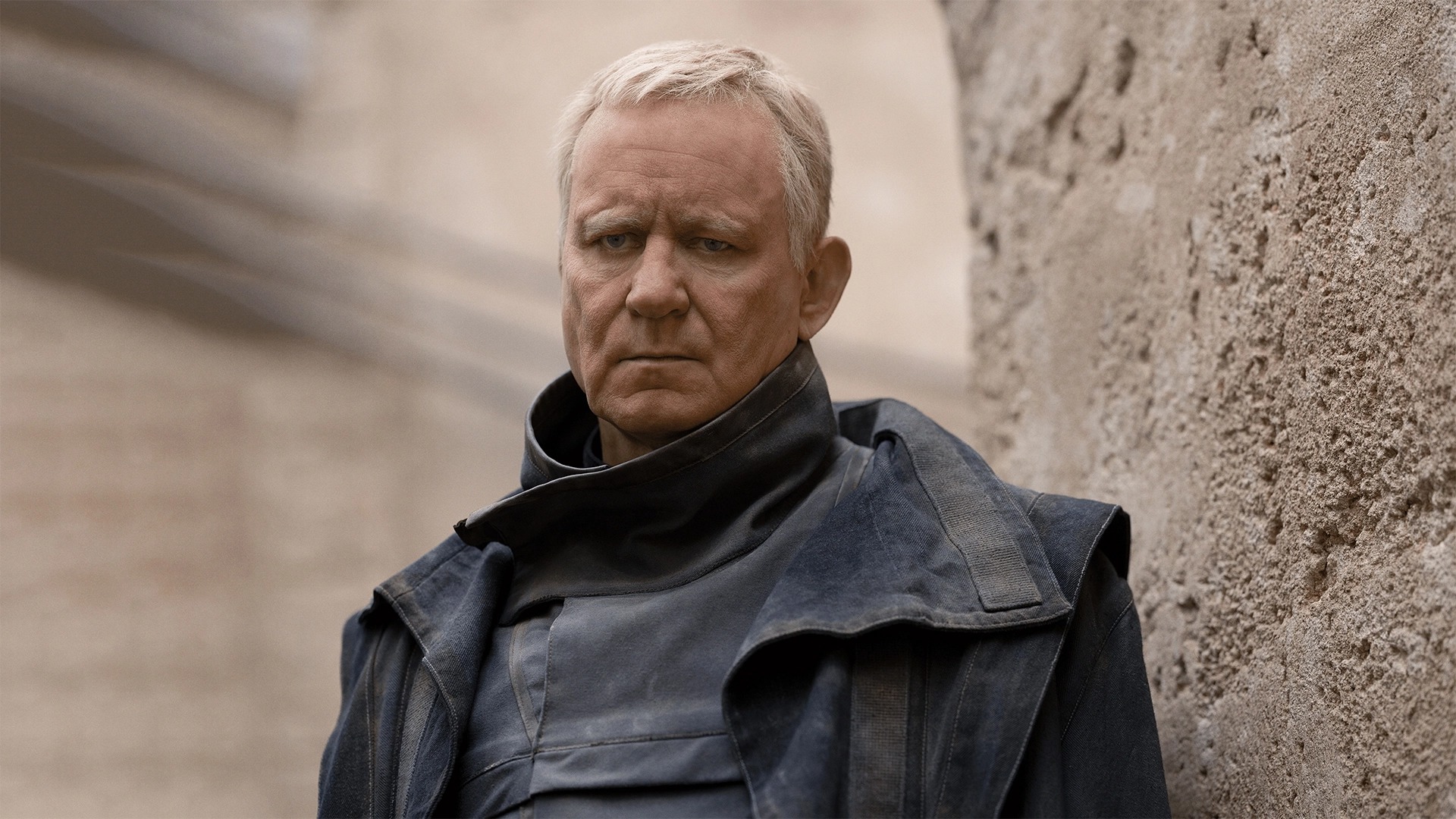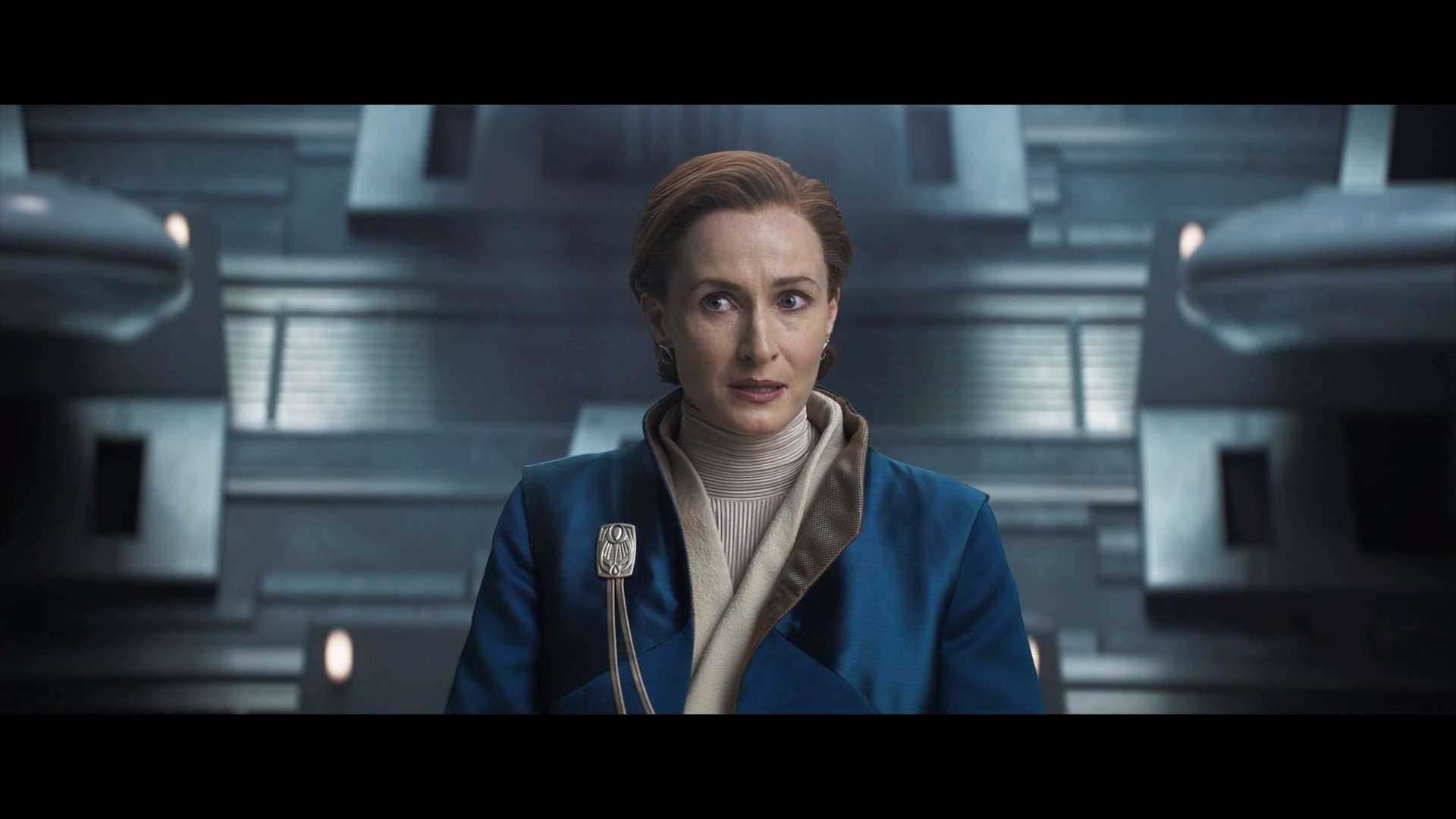
Hope and Sacrifice in Andor
This is an excerpt from the cover story of Unwinnable Monthly #161. If you like what you see, grab the magazine for less than ten dollars, or subscribe and get all future magazines for half price.
———

Disney’s series Andor diverges from the path taken by the sequel trilogy – and even from the trajectory of its own canonical movie, Rogue One – in its singular focus on the ideologies and power structures behind its villains. The vision of hope that the show offers is substantiated by the sacrifices its characters endure and the threat they all face. Andor paints a clear and lucid picture of the absolute power authoritarians can wield over people and how cruel fascism must be in order to preserve that power.
While Star Wars as a franchise has always revolved around the dynamic between good and evil, and around the balance between light and dark, there is something about lightsabers and Force lightning that keeps these concepts confined to the world of fantasy. Over time, the mainline movies have become increasingly self-referential and reliant on their connections back to those iconic heroes from the original films in order to instill meaning and substance in their own narratives.
Andor’s best quality, however, is its ability to make Star Wars feel human – to make the consequences in its world feel tangible, and to detail those systems of oppression with horrifying clarity. It is less interested in who the Emperor is, he is hardly mentioned more than once in the entire season, than it is in the fascist Empire he has created. In this, Andor revitalizes the motifs of hope and sacrifice that are at the core of the franchise.
The central conflict that Cassian faces as a reluctant protagonist is this question of what to do once fascism becomes inescapable. Every character in Andor holds out hope for an alternative, but each comes to realize how futile that effort is. Before Cassian Andor is convinced to take on the Aldhani heist, rebel conspirator Luthen Rael deconstructs his choices for him and shatters the illusion of escape: “They’ll use the same rope to hang you whether it’s for a plasma coil or 20 million credits . . . Wouldn’t you rather give it all at once for something real than carve off useless pieces ‘til there’s nothing left?”

There is no foretold prophecy or secret lineage of “chosen” predecessors to help guide Cassian through accepting his role as a protagonist and revolutionary; the show refuses to rely on any narrative crutch to explain his development as a character. That change is forged in loss and sacrifice, and Andor’s own message about hope is largely shaped by who these characters are after they confront the fact that they will not survive their fight against the Empire.
Two distinct instances of characters pushing past this realization come from Coruscant, the capital planet of the Empire. The double lives of both Mon Mothma and Luthen allow them to strategize and fund resistance efforts from the heart of the fascist system. As the rebel activity becomes more coordinated, and the impacts of the Aldhani heist are felt across the galaxy, the stakes for their collusion are heightened. Both of them, clearly positioned as protagonists in the narrative, end up sacrificing moral clarity in their commitment to a greater cause.
The choices these characters make are complex because of the amassed power of the Empire; there is no uncomplicated way to resist it. At one point, Luthen is confronted with the opportunity to either let an accomplice and dozens of his men die in an Imperial attack, or risk losing his informant in the Imperial Security Bureau. When the ISB informant confronts Luthen about the dilemma, he discovers that not only is Luthen willing to let them die for the cause, but that his role as an informant is no longer voluntary. Luthen bluntly admits to him that he has become too valuable to the rebellion and that releasing him from his service was not an option. The conversation does not delve into what is right, and there is no pretense about whether or not Luthen’s justifications are dignified. Luthen admits solidarity with the informant and sums up his fight against the Empire: “. . . my unwillingness to yield, my eagerness to fight. They’ve set me on a path from which there is no escape.”

Senator Mon Mothma, in an attempt to disguise her funneling money towards rebel efforts, ends up implicating one of the few senators sympathetic to her cause and potentially endangering her daughter. Usually a voice of virtue and uncompromising morality, she managed to navigate the political dangers of Coruscant almost without fault. The slightest misstep, just “one empty ledger at the end of the line” compromises her entire operation. How quickly and completely desperation consumes her is justified by the cruelty the Empire shows to its dissidents.
Recent sequel films seem to begin with the same dwindling group of resistance fighters looking for their big break against an insurmountable, unconquerable force. Yet the latent threat in Andor, the suspense of being boxed in and constantly under surveillance, is more effective and more daunting than any lightsaber-wielding Sith lord. Watching Mon Mothma’s morals break down as she considers leveraging her daughter as collateral for a misstep in her fight against the Empire is brutal to watch. The toll for resistance becomes proportional to the force it opposes, and as fascism takes an increasingly aggressive hold over the galaxy it is crushing to watch well-meaning leaders sacrifice their integrity and morals for a greater cause.
The formation of an organized rebellion is not a linear process, though. It forces leaders to compromise values, to forge unsavory alliances and to endlessly ask personal sacrifices for the sake of collective action. It involves a life of sacrifice. By its nature it must be fought with the tools of the enemy, as fascism is incompatible with political negotiation, responding only to power and violence itself. Luthen, and the other key figures in this first season, come to understand why “burning my life to make a sunrise I know I’ll never see” is the only natural response to the tyranny they face.
———
Kiernan Elam is a writer and community organizer in Los Angeles, CA. He has a degree in English from the University of California, Davis where he studied Fascism in Film Narrative. You can follow him on Twitter @Kiernan_elam.
You’ve been reading an excerpt from Unwinnable Monthly Issue 161.
To read the article in its entirety, please purchase the issue from the shop or sign up for a subscription to Unwinnable Monthly!




